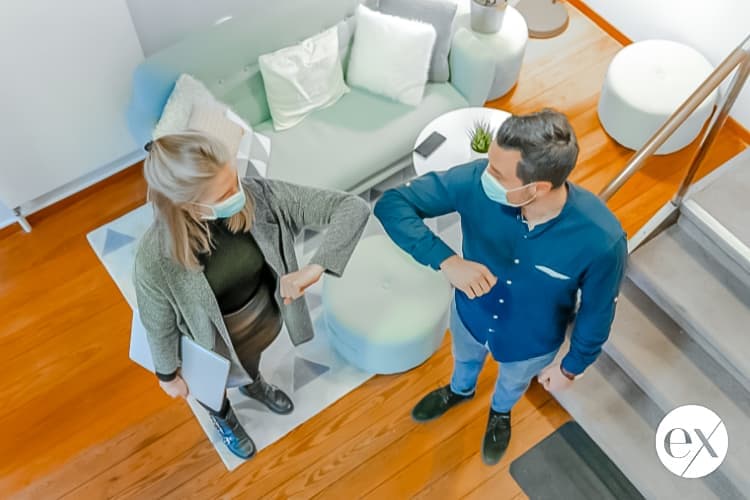
There’s no question, that Covid’s effects have been a real challenge for all of us. The Pandemic had a major impact on families everywhere, particularly divorced families, since there is a lot of discord around what is safe or not, and that has added an extra level of stress for many who are tackling co-parenting, step-parenting, and blended families. What I’ve found in my practice is that all this quarantined time alone has either brought couples together or pushed them further apart. We have used this time to play on the same team (because when we are married, we ARE on the same team). Or we have been opponents.
If we share children, much of the business we discussed when we were married is the same when we are divorced.
School, doctor’s appointments, socializing, sex, drugs, alcohol.
Even though we have guidelines by the CDC, an individual’s idea of safe social distancing, wearing masks and even vaccinating varies. Comfort levels about these issues can create greater anxiety in some, while not so much in others. When we can honor each other’s feelings and wishes and come to a happy medium where both parties are satisfied, with some level of sacrifice, then we are in good shape. It’s called meeting in the middle.
In a divorced situation, where there are two homes that children live in, or where the children have been divided, that creates other complications.
As long as there is good communication, and all parties are honest about their whereabouts and wishes, satisfying decisions can be made. We need to make it feel safe for the other person (or persons) to communicate candidly, without repercussion. This requires good listening skills. Not interrupting, but being still and putting our world “on hold” for the moment that we are listening to the other.
It is up to the individual always, to know their own needs and voice them in a calm, respectful manner.
It’s my belief that children should also feel safe and voice their own needs, and that parents should respect their children’s needs around wearing masks, social distancing and getting vaccinated. Unless, of course, it puts others in the family at risk.
I always advise my clients to check in with their ex or their spouse by asking when would be a good time to discuss a particularly important topic, and not just hoisting our demands on them whenever we happen to be ready to talk about them.
I suggest they make an “appointment,” just as you would with a colleague or friend, to have a Zoom coffee or safe distancing coffee and discuss the topic at hand. Whether it be about covid, money, schooling or whatever.
Rather than accusatory statements such as, “You should have better judgement than to let Jane go to that party,” I encourage people to use “I” statements, like, “I feel uncomfortable about Jane going to a party indoors where many may not be vaccinated or wearing masks. I need to know she is masked or outdoors. I request we allow her to go under these circumstances.”
So there is an observation: Jane is invited to a party indoors where there may be people that are not masked or vaccinated.
There is a feeling about this observation: I feel uncomfortable.
There is an unmet need: I need to know she is safe.
There is a request: I request we let her go if she wears a mask or is outdoors.
This is the formula for all non-violent, difficult conversations. We state a non-judgmental observation, we take ownership of our own feelings and needs and we make a request for change. There may be negotiation once the other party states his or her feeling, need and request. Flexibility is key.
The way we know if we are ready to have the difficult conversation is we rate our own anxiety on a scale of 1-10. If we are above a 4, we do not have the conversation.
We push it off to a later time, either by a couple of hours or the next day. But we need to be careful not to let 24 hours go by without it being addressed. Out of respect, we attend to our ex’s request for conversation, just as we would want them to do the same for us.
We can manage our anxiety by exercising, getting enough sleep, eating well, journaling, speaking to a therapist, using breath work, practicing meditation and prayer,
having a form of recreation or creative expression, listening to music, taking a walk in nature, bubble baths, taking a nap, and socializing – even in these conditions – either in person at a safe distance or on some social media platform. Lots of people have been doing zoom happy hours, family gatherings, etc.
We also need to be our own best friend. When we get anxious or depressed about what’s going on in the world, we practice speaking kindly to ourselves. This is known as “positive self-talk.” We say rational yet encouraging words to ourselves, “This will be over, we don’t know when, but it will come to an end. Things will go back to a more normal way of life, and I can tolerate making adjustments until they do. I have survived worse, I can do this.”
And I always say, “self-care is primary care.” What can I do for myself right now to feel better? What do I need right now? How can I practice self-care?
It’s so important to give ourselves powerful tools to manage our own stress, and ultimately increase our immune function. Stress is inflammation in the body, and by practicing mind-body skills such as breath work, meditation, yoga,
self-expression, massage, acupuncture, a holistic diet, cutting out cardboard-boxed foods and implementing fresh fruits and vegetables into our meal plan,
we can reduce inflammation and not only give our bodies a better chance at beating illness, but put ourselves in a much better mood.
We can also have difficult, non-violent communication with our ex, or anyone for that matter, when we take care of ourselves, when our bodies and our minds are not stressed, or inflamed.
Now you may think, I wish I had these skills when we were married. We might have had a “fighting” chance. But put these practices in place now, for your own well-being, and for relationships to come.
Leave a Comment
You must be logged in to post a comment.










